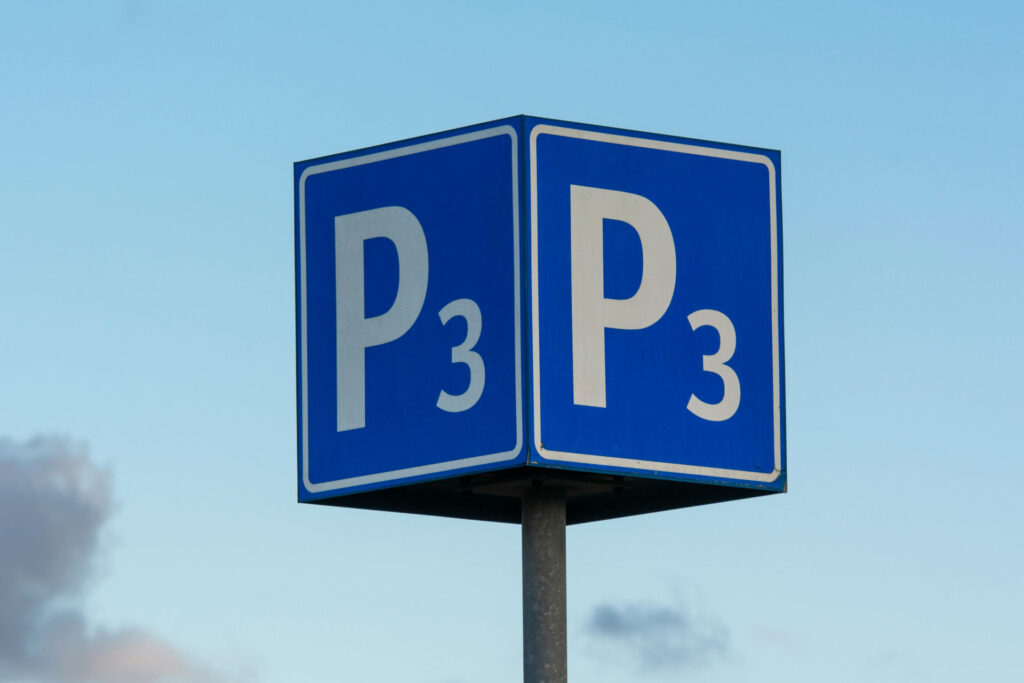Flip the Script: When we stop letting our contradictions be weaponised against us.
What if we could flip the script? What if we could counter the tide of anti-politics, not with polished PR or institutional self-defence, but with counter-marketing? By flipping the very tactics used to sow distrust into tools for clarity? Counter-marketing doesn’t mean marketing the opposite. It means naming the game. Holding up the mirror and highlighting the manipulation, the emotional bait, the shortcut thinking.
Because here’s the uncomfortable truth: we’re complicit, too. Not maliciously, but structurally. Emotionally. We’ve become allergic to complexity but addicted to contradiction.
- We want greener cities, but also cheap flights to Barcelona.
- We want less traffic, but not without our own car right outside the front door.
- We want less migration, but without genuine efforts to tackle war, famine, or climate collapse.
- We want “solutions”, but only if they don’t ask us to change our comfortable lives.
This isn’t hypocrisy. It’s ambivalence; a normal, human condition.
This collision of contradictory desires creates just enough moral noise to let bad-faith actors write the louder story. And because it feels like too much to resolve, we reach for the quick fix and the simple slogan that comes with it.
The real problem isn’t that people are stupid or selfish. It’s that they’re overwhelmed, bombarded by complexity, and offered easy answers that seem more appealing than the hard ones. Meanwhile, our ambivalence gets weaponised against us, turned into the very ammunition that destroys moral governance.
The Mechanics of Moral Misdirection
Let’s examine how this works in practice.
Take the tools at our disposal: reward, normalisation, punishment. These aren’t neutral instruments; they’re the fundamental mechanics of both marketing and governance. The question isn’t whether they’re being used, but whether they’re being used honestly. Consider the heated debates over parking in our cities. There’s a push for greener environments, reduced emissions, and better urban planning. But when parking spaces disappear or prices rise, outrage flares. It’s not just inconvenience; it’s identity, autonomy, and fairness.
“They’re making it impossible for regular people.”
The real issue of mobility transition and spatial justice gets drowned out by the noise of loss. The response isn’t a conversation; it’s communication built on simplification, polarisation, and dramatisation.
Here’s where counter-marketing comes in: instead of defending the policy or attacking the critics, we name the misdirection. We point out that everyone wants contradictory things, and that’s exactly what’s being exploited.
“You want clean air for your children and convenient parking for yourself. That’s human. But someone is using that contradiction to stop you from getting either.”

Case Study: The Airport Parking Misdirection
Picture this: an airport generates substantial parking revenue as its second-largest income stream. The municipality holds shares in this profitable venture. But the infrastructure doesn’t meet demand, and cheaper third-party parking is blocked, which creates a predictable spillover: travellers park in nearby residential neighbourhoods.
The “obvious” solution? Impose paid parking or permit systems in affected neighbourhoods.
But here’s the misdirection at work: we’ve been trained to see this as a conflict between residents and travellers, between local interests and economic mobility. The real story is about profit distribution and cost externalisation. The real question is who benefits from this arrangement. The airport profits from scarce parking. The municipality profits as a shareholder. The travellers save money by parking for free. The only party that loses, without having created the problem, is the residential community. All while the frame is “a conflict between locals and travellers”.
Counter-marketing would expose this misdirection directly:
“You’re being asked to solve a problem you didn’t create, to protect profits you don’t share. Why aren’t the people making money from this airport paying to fix the problems it causes?”
The residents want both: economic activity that benefits their city and neighbourhoods that aren’t overwhelmed by the spillover effects. That contradiction is being used to frame them as either NIMBY’s or pushovers, when the real issue is fair cost allocation. Moral governance would ask: shouldn’t those who profit from the airport’s success (the airport itself and its municipal shareholders) bear the responsibility for solving the problems they create?
Case Study: The Migration Narrative Trap
The immigration debate offers an even starker example of how our contradictions get weaponised into political ammunition.
- We say we want to be compassionate but also secure.
- We want to help people in crisis, but not disrupt our communities.
- We want global economic integration as well as local cultural stability.
These aren’t irrational desires; they’re deeply human ones. But watch how they get exploited.
Political parties hammer on migration as a singular theme, deliberately blurring distinctions between economic migrants and expats, asylum seekers and refugees, and study migrants, temporary protection migrants or other types of migrants. The visual evidence seems compelling: overcrowded migration centres, apparent strain on public resources, criminality, and communities expressing frustration.
Like a well-crafted marketing campaign, the narrative focuses attention on visible symptoms while directing it away from systemic causes. The real question is what we don’t get to see anymore. The distinction between intake and accommodation policies. The difference between temporary status holders and those with permanent residence rights. The connection between foreign policy decisions and refugee flows.
By collapsing complex realities into simple narratives, we’ve normalised the idea that the problem is inherently about “too many people” rather than “inadequate systems.” We reward politicians who offer simple explanations and punish those who insist on nuanced analysis.
Counter-marketing would cut through this:
“You’re not heartless for wanting your community to feel stable. You’re not naive for wanting to help people in crisis. But you’re being forced to choose between them so someone else doesn’t have to make hard decisions about foreign policy, housing policy, or integration support.”
The result of accepting a false choice? Symptom-focused policies that may actually entrench the underlying problems while appearing to address public concerns.

The Counter-Marketing Toolkit
Counter-marketing works by showing the audience how they’re being played. Not to shame them, but to equip them and to give language to the discomfort they already feel. It’s not enough to fight disinformation. We need to fight for resonance. We need to expose the emotional engineering:
- “Why do you think they keep you angry? Because angry people don’t ask good questions.”
- “You’re not wrong to be frustrated. You’re just being pointed in the wrong direction.”
- “If the answer fits on a bumper sticker, it’s probably not the whole story.”
These aren’t slogans. They’re nudges. Disruptions. Clarity bombs.
Recognising the Pattern
The first step is teaching people to recognise when their contradictions are being weaponised. This requires borrowing from marketing strategy and asking:
- Who benefits if we accept this framing of the problem?
- What information is being emphasised, and what is being obscured?
- Are we being asked to treat symptoms or causes?
- Who bears the costs of the proposed solution, and who captures the benefits?
Owning Our Ambivalence
Instead of pretending our contradictory desires don’t exist, we need to own them explicitly.
“Yes, I want both economic growth and environmental protection. Yes, I want both security and compassion. Yes, I want both individual freedom and collective responsibility.”
The moment we own our ambivalence, it becomes much harder for others to use it against us.
Demanding Moral Governance
Moral governance doesn’t mean telling people what to want. It means helping them see where their wants are being weaponised against them. It means being the facilitator of moral clarity rather than the parental figure dispensing wisdom.
This requires:
- Radical transparency about policy trade-offs and who benefits from current arrangements
- Stakeholder honesty that acknowledges all affected parties, not just the loudest voices
- Root cause analysis that resists the pressure for immediate solutions and insists on understanding underlying systems
- Moral framing that asks what kind of society we want to be, not just what’s politically opportunistic
Beyond False Choices
The choice isn’t between simple and complex solutions. The choice is between honest and dishonest ones, between moral and expedient ones, between sustainable and short-term ones. We’ve been conditioned to think that acknowledging complexity means accepting paralysis, that nuance equals weakness, that moral governance is naive idealism. This is exactly the conditioning that needs to be disrupted.
Counter-marketing teaches us that we can communicate complexity honestly while making it accessible, that we can resist the temptation to oversimplify while acknowledging the human need for clarity, and that we can insist on solutions that address root causes even when symptom management seems easier.
Marketing isn’t evil. It’s a tool. It builds brands. It builds trust. And trust, real, earned trust, is exactly what good governance depends on. So let’s use marketing as it was meant to be used: to tell the truth in ways people can relate to.
The Democratic Imperative
This isn’t merely about better policy outcomes; it’s about preserving democratic governance itself. When citizens can’t understand policy rationales because they’re deliberately obscured, when complex problems get reduced to tribal affiliations, when symptom management passes for leadership, democracy becomes vulnerable to demagogues offering simple solutions to complex problems.
We’ve seen this pattern before. We know where it leads. But we also have the analytical tools to recognise it and the democratic institutions to resist it. That is: if we choose to use them.
The quality of our governance reflects the quality of our citizenship. If we accept symptom management, we’ll get symptom management. If we demand moral governance, and learn to recognise when our own contradictions are being used against us, we create the conditions for leaders who can deliver it. Because the truth deserves better marketing. And moral governance deserves citizens who won’t let their ambivalence be weaponised against their own interests.
The script is there to be flipped. The question is whether we have the collective courage to flip it, even when the simple answers feel so much more appealing than the honest ones.
The choice, as always, is ours. Democracy deserves citizens who won’t settle for less. And citizens deserve moral governance that works for them, not against them.
https://www.linkedin.com/pulse/flipping-script-how-counter-marketing-can-restore-moral-biemans-lynke

Comments are closed